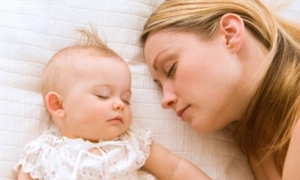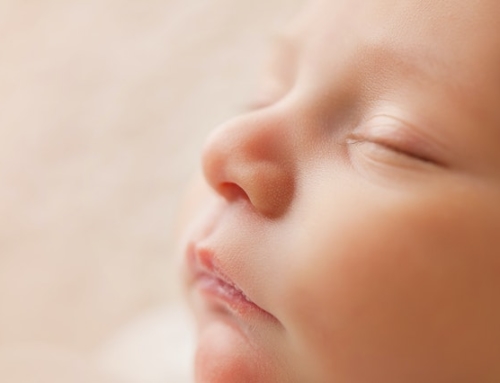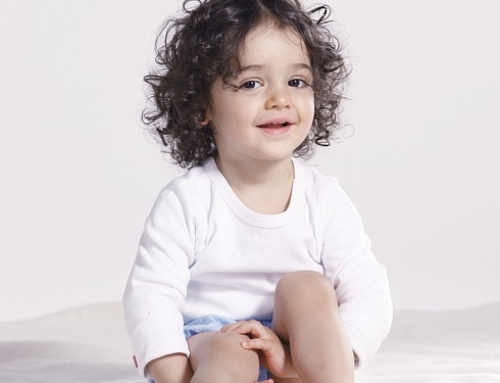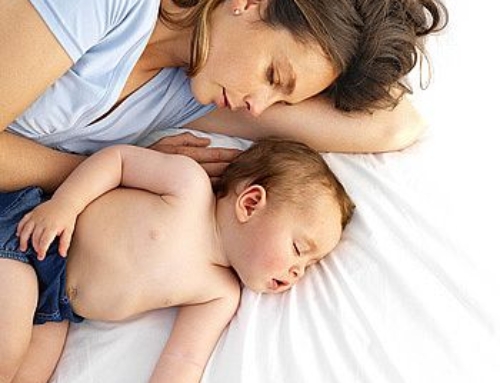 I think we all know how obsessed we are in our culture with sleep. Although infants and children bear the brunt of the worry and obsession, it extends into adulthood as well. There are countless studies on the benefits of getting enough sleep and getting good sleep. A good sleep helps us cognitively (focusing, attending to information, learning), it helps our motor skills, and psychologically we’re in a much better frame of mind when we’ve had a good sleep
I think we all know how obsessed we are in our culture with sleep. Although infants and children bear the brunt of the worry and obsession, it extends into adulthood as well. There are countless studies on the benefits of getting enough sleep and getting good sleep. A good sleep helps us cognitively (focusing, attending to information, learning), it helps our motor skills, and psychologically we’re in a much better frame of mind when we’ve had a good sleep
There are even relationships between certain sleep disorders, such as insomnia, and emotional disorders, such as anxiety and depression[4]. So we have good reason to think about and worry about sleep, but in all this worry and obsession and research, sleep is continuously viewed as a solitary activity. It is something that affects only one person. And why not? I mean, you sleep on your own, your body and brain slow down and you lose conscious awareness of what is around you. Yet we are ignoring something incredibly valuable by thinking of sleep only as a solitary activity.
In many ways, sleep is a social activity and is hugely important to our social well-being. Though we sleep alone in our society, this is not how we have evolved, and we see this when we return to shared sleep when we marry or live with another person. As soon as you have someone you plan to spend your life with, you are expected to sleep with them. In fact, in our society, isn’t not sleeping with your partner a sign that something might be wrong? Or rather someone has done something wrong? The stereotypical husband sleeping on the couch stems from this very real fact that something special occurs in the bedroom (and it’s not just sex). (Note there are very valid reasons people sleep separately, but I’m talking about the perceptions here and often the separation during disagreements.)
So what is it about sleep that’s social?
Trust
When we sleep, we are at our most vulnerable. Thinking evolutionarily, sleep is one of our most dangerous times – we are open to attack, unable to defend ourselves – and as such it should make us very leery. Imagine how well you would sleep in the woods on your own with no one to keep a lookout. Probably not well. Despite our modern surroundings, this inkling that something is not right remains. We have locks, alarms, etc. that serve as our protection whereas it used to be other people. And we typically don’t sleep well if we don’t have these protections and we’re alone because that instinct to preserve ourselves kicks in and we sleep with the metaphorical one eye open.
But having just anyone around doesn’t help things. Being as vulnerable as we are in sleep, we need someone we trust to be close to us. Most of us wouldn’t pick up a stranger, invite them into our homes, and sleep soundly that night with our doors wide open. The close-knit communities of tribal societies mean everyone is trusted and the group looks out for each other. Depending on where you live and the level of community you have, you will probably see more or less unlocked doors at night and I would guess more or less sleep problems too. When we send our loved ones out of the bedroom because we’re mad, we are saying to them that we don’t trust them. And the return to the bedroom is the return of trust. Trust is integral to our sleeping arrangements, and without the feeling that we can trust that we are safe, we encounter sleep problems.
Love
The other aspect of sleep that we ignore is love. Though love and trust typically go hand in hand, they are separate emotions with separate etiologies. But when we sleep next to someone, there is a level of physical intimacy (not sex) that exists that builds bonds and creates feelings of closeness. At the most basic level, there are hormonal changes from the release of oxytocin that we get when we are close to someone[5]. These hormones help us fall in love with our partners each and every night we’re next to them. I do believe some of this is also built upon the mutual trust that has to exist in order to sleep next to each other. Despite the fact that we aren’t actually doing anything with our partners while we sleep, that simply proximity helps us love them more. Distance doesn’t make the heart grow fonder – it can strain relationships and takes far more work than when people are physically close, both at the larger level of living apart and at the micro level of being apart within the same house.
The flip side is also worth considering. Think of how your feelings change when your partner interrupts your sleep. When one person snores, or works strange hours and wakes the other partner up every time they get into bed, or is too loud getting ready while the other partner is sleeping. There are many things that a partner can do that interrupts our sleep, and importantly it affects our relationship with them[6]. Sleep problems affect our relationships with our partners, just as problems with our partners can also affect our sleep. Importantly, it isn’t just your partner’s behaviour in sleep that can affect the love you share, but any event that affects your sleep. And though the mechanisms are unknown, I would assume that the interruption of oxytocin would hurt the bonding we feel and that the constant waking would signal our primal brains that we aren’t safe, leading to trust issues as well. The relationship between sleep and love is strong because sleep isn’t only a solitary activity, in fact, one could say it is actually quite social at its core.
Implications for Kids
Because we talk about parenting here, I can’t help but bring this up with respect to infants and children. Our children, infants in particular, live in a state of needing to trust someone to survive and nighttime is a particularly difficult time for them. The darkness and lack of noise tweak their instincts and they are biologically designed to try and ensure their survival. Sleeping alone does not help them. This doesn’t mean bed-sharing (though it can), but room-sharing provides infants with implicit knowledge that someone is there with the added noises, particularly breathing noises that other family members make, and the much more immediate response to arousals. In our concern for “teaching” our children how to sleep, we have ignored that sleeping comfortably requires that they trust us implicitly to look out for them when they are most vulnerable. Leaving them alone, oftentimes to cry, is not sending that message.
But infant sleep also has effects on the love front. First, we have to accept that the sleep problems generally associated with new children can affect our relationships. Although this is generally known, the solution thus far has been to tell parents to sleep train their children. To shut them away in another room and leave them alone. And yet, if we accept that this behaviour would affect our relationship with our partner, what makes us think it won’t affect our relationship with our child? The closeness of co-sleeping means that infants and children benefit from the same feelings of love and bonding that exist for our relationships with our partners and this is key when they are infants as it will allow them to grow up knowing they are loved all the time. But even older children need this closeness at times, and we seem to recognize this in extreme circumstances. Children who’ve had nightmares are usually (though not always) welcomed into the parental bed to help them feel safe and secure and loved and thus, to sleep. But it doesn’t have to happen only when children are scared. And it doesn’t have to just be parental closeness. For ages, children at a certain age shared rooms or sleeping space, providing love and comfort for each other. Our obsession with kids needing their own space is more of a reflection of our own desires than many children’s. Kids want to be together, they want to be close to friends, siblings, parents, etc. and allowing kids to share a room with their siblings can give them that sense of love and trust that we want our kids to have for each other.
You can also continue to do the family bed until your children are ready to move into their own room (with or without siblings). Without siblings to share a room with (yet), this is the option we have chosen for our daughter. And it has had an unexpected benefit that I never foresaw but would never give up. Let me start by saying that I believe we all love our children unconditionally, and that we hope to ensure that they experience our love in that manner. But it is very hard to do that on a daily basis. To not get frustrated and make a judgmental comment or to withhold our love when we’re angry. We all try not to do these things, but oftentimes we fall short because we’re human. However, with the family bed, we get to end every single day with this unconditional love. Every night I crawl into bed when it’s bedtime for my daughter and we cuddle as she nurses. I tell her I love her and she nods every single time. Sometimes there’s a story, sometimes not, it’s up to her. But she falls asleep in my arms, knowing she is loved, no matter what has happened that day. No matter how frustrated I got, no matter how many tears were shed, no matter how many regrets I may have had about the mistakes I made that day, it all disappears when we go to sleep. She trusts me and she feels loved. And isn’t that what sleep is all about?
***
If you are in need of individualized parenting help with sleep or other areas, I offer science-based, gentle, and attachment-focused help via email, Skype, or phone. You can find out more here.
[6] Troxel WM, Robles TF, Hall M, Buysse DJ. Marital quality and the marital bed: examining the covariation between relationship quality and sleep. Sleep Medicine Reviews 2007; 11: 389-404.






[…] this article: For the Love of Sleep | Evolutionary Parenting | Breastfeeding and … ← Become a Better Parent With These Tips | Days With My […]
Great article Tracy! We are currently doing the same with our 8 month old boy. It is hard not to feel judged or worry about him ever sleeping on his own, but he is growing so fast I want to cherish every single moment!
[…] that parents are nearby. The younger the child, the more true this is. In an article entitled For the Love of Sleep by Tracey G. Cassels At Evolutionary Parenting she says, “ Our children, infants in […]
I think you make such great points! I had never thought about the significance of survival when it came to my sleep desires, but it makes complete sense now. Before I met my husband I refused to sleep with my back to the door of the bedroom and set up my bed so that I could always sleep in a comfortable position without having my back face the door. Now that I sleep with him, I don’t think about which way I’m facing because I know that he’s facing the door if my back is to it. Our 7 (almost 8!) month old sleeps with us as well. It wasn’t something we planned beforehand, but my husband and I are really grateful we ended up bed-sharing now. I’ve also found that I can sleep better because the baby is with me. I know so many women complain about lack of sleep with babies this young (in fact, people often ask me how the baby sleeps and if he’s sleeping through the night ), but I basically sleep from the time we get in bed until it’s time to wake up and I credit that to the fact that he’s with me. I don’t have to get up to nurse and I don’t have to fully wake up to check on him at night. There were/are so many nights that I wake up with what I assume are normal new mom worries and being able to put a hand on his back and feel him breathing is so reassuring. I had never thought of sleep as a social event, per se, but as I think back on sleep-overs that I had as a child and the love and connection that I still feel with those friends, it really makes sense. Great post!
I read this article with great interest.
My partner and I co slept with our daughter until she was 7 months old, we used a co sleeper, but she mostly ended up nursing and cuddling with me. She smelled so good! Now she has grown a little (she is two and a half), we decided that she needs a place in bed with us for when she gets upset in the night. Admittedly, it was not often, but I was adamant that she needed to feel welcome and that there as a place for her if she needed it. We found a second hand, nearly new superking bed on the internet and it has worked out beautifully for her, but the problem has arisen with my partner and I. We have become quite distant with each other and slightly reticent. My partner was close to sulking one night when I sharply asked him what on earth the matter was. He explained that we were so far away from each other when we were sleeping that it had started to have a negative affect on him. He just wanted to be able to put his hand out and know I was there, for no reason other that it made him feel settled. He wanted to make sure that we had a pre night cuddle to keep us close. We made some changes to the way we sleep in such a colossal bed. Our relationship showed almost instant improvement. We both hate sleeping alone, we always have, but i find it very hard to sleep when someone is cuddling me (my daughter has this trait). I have always shared a room, firstly with my parents, then my sister and now with my partner. There is definitely a social element to sleeping, and I have always considered this while bringing up my daughter, who I love to snuggle up to when she allows it!
Would you be able to include an image with your articles so they are “pinnable”? Thank you!
I do actually, the problem was with the last theme we used – the image that was the main thumbnail image was also embedded in the article which was then pinnable. We recently switched themes and all those embedded ones disappeared so I have to try and do them all bit by bit 🙁 I’ll get one on for this one!
Your article makes several interesting points. However, as a grandparent who lost her first born grandchild to SIDS, while the baby was asleep in her parent’s bed, gives me pause and hesitation to endorse all. While they are tiny, newborns should not be in the bed with parents. You have no idea of the pain of losing an infant. Or seeing your child suffer the loss of their child. I slept many a night with an infant in my arms in the rocking chair rather than sleep with them in the bed.
Susan, I’m so sorry for your loss, but I’d like to clarify a few things. First, SIDS is not suffocation and from the new research out there, there isn’t a link to bedsharing (unless done unsafely which I hope was not the case for your daughter), but even then it’s not *causal*. The most recent analysis found brain stem abnormalities in children who died of SIDS regardless of where they slept. As such, the idea that SIDS is somehow caused by bedsharing is very wrong. Second, the mention of rocking chair is actually one of the main reasons to fight for proper education about safe bedsharing. One study found a massive increase in suffocation deaths in unsafe sleep environments (chairs, sofas, etc.) because people were trying to avoid bedsharing. This practice actually puts more babies in danger which is something no one wants. What we need is education on safe cosleeping and a greater understanding of SIDS. I do hope that your daughter and you have healed to the best of your abilities though as the loss of an infant is a tragedy no one should experience.
oh yes! you have managed to articulate so much of my own thoughts around this. I have bedshared with all three of my kids and I especially enjoyed the way you expressed the special intimacy shared between people when sleeping. I have always felt this way. my eldest, now 13 (naturally she sleeps on her own now) I still go in and give a kiss before I head off to bed myself and she still nods and smiles through her sleep from my touch. I have always approached sleep and my babies needs from a survival/physiological level. it makes sense to me to not fight our biology. thankyou for a lovely affirming read
I really like this article. My husband and I bedshare with my 21 month old (her crib is sidecarred to our bed so she has more space if she wants it – sometimes she does, sometimes she doesn’t). I find it interesting though that I’m always being told she needs her to be slep trained. The really interesting thing to me is over the last few months SHE has been choosing to go to bed earlier and get up earlier, and some nights she nurses to sleep, some she cuddles to sleep and some nights after our bedtime routine she gives us a hug and a kiss and lies down with her stuffy, rolls over and ggoes to sleep. It feels riht to me this way as it is her learnkng what sue nweds.for herself and teachong us what she neds not ua forcing her into societal “normality” 🙂 sorry fo any grammar or spelling errors…..i’m on my phone and juggling a nursong baby and teexting left handed…lol
[…] for the love of sleep […]